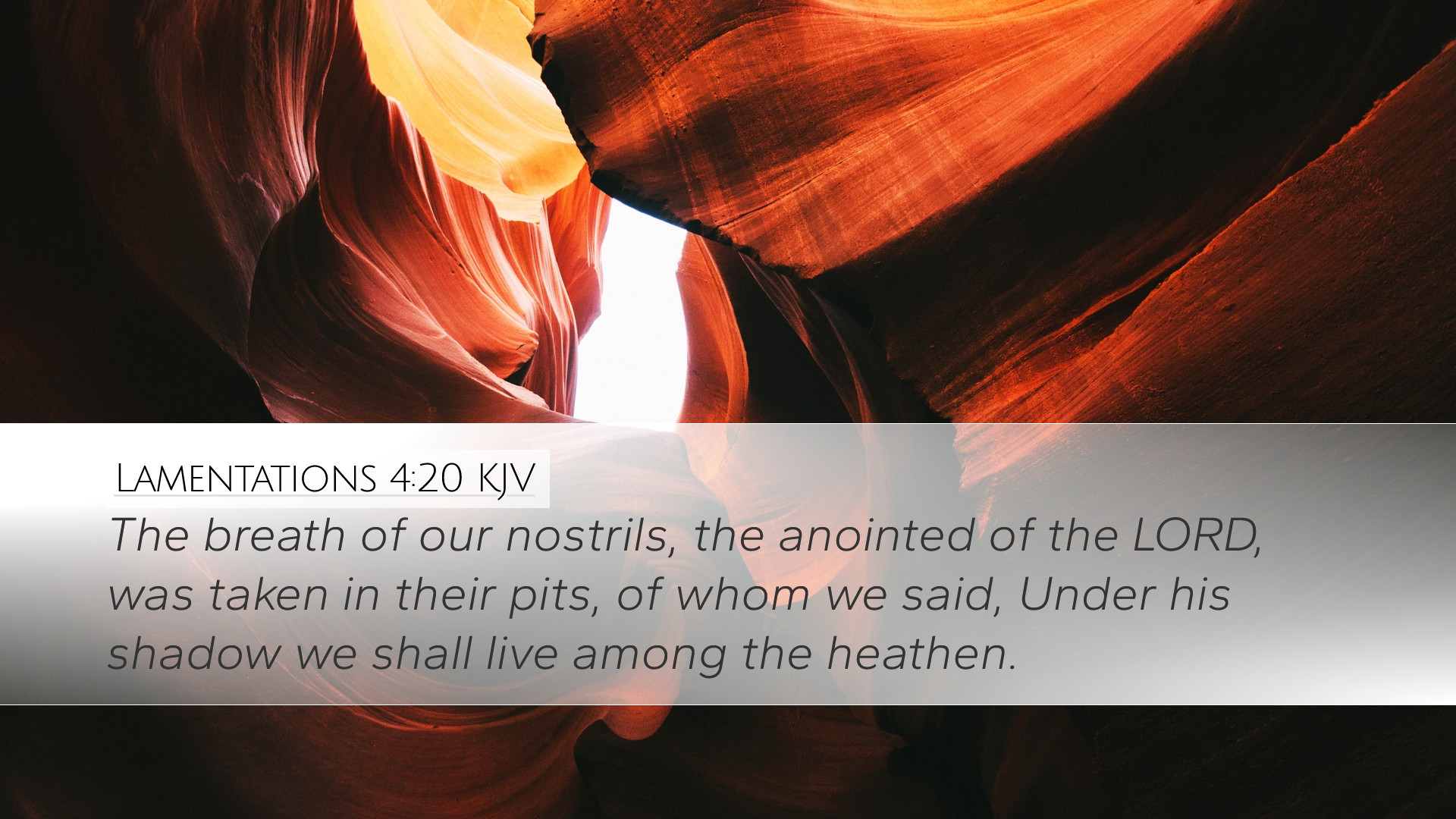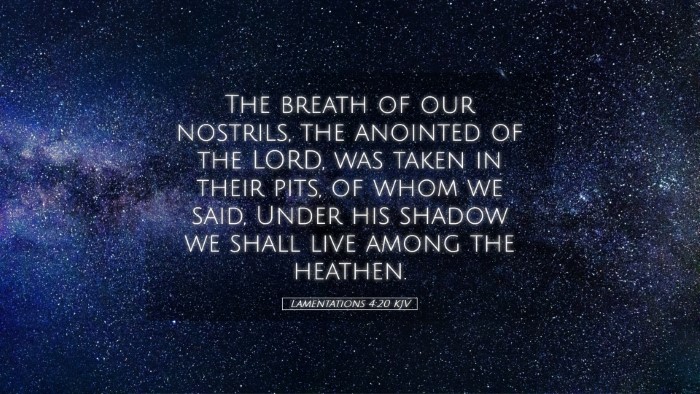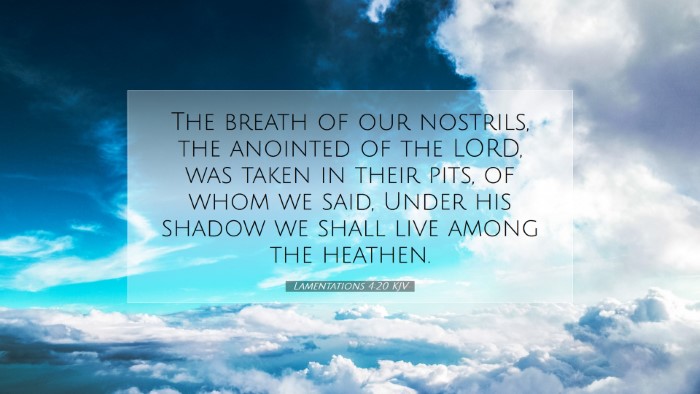Lamentations 4:20 - Commentary Summary
Lamentations 4:20 states:
"The breath of our nostrils, the anointed of the LORD, was taken in their pits, of whom we said, Under his shadow we shall live among the heathen."
Contextual Background
This verse is situated within the profound lamentation by the prophet Jeremiah following the fall of Jerusalem. Lamentations reflects the desolation and despair that engulfed the people of Judah, mourning the destruction of their city and the temple. Chapter 4 focuses on the dire circumstances faced during the siege and the subsequent devastation.
Key Themes and Insights
The Breath of Our Nostrils
In the Hebrew text, the phrase "the breath of our nostrils" represents a figure of speech illustrating the deep reliance of the people on their leaders, particularly the king. This metaphor highlights how vital their leader was to their survival and identity.
- Matthew Henry: Describes the anointed as a reference to the king, indicating his role as divinely appointed for the welfare of the nation.
- Albert Barnes: Emphasizes the sorrow of losing the leader who symbolized hope and protection in a time of great adversity.
- Adam Clarke: Points out the spiritual dimension, noting that the king represents God's presence and favor among His people.
The Anointed of the Lord
The term "anointed" refers to those chosen by God, particularly the Jewish monarchy. This underscores the theological implications of kingship in Israel, where the king had the dual role of being a ruler and a spiritual leader.
- Matthew Henry: States that the anointed was seen as a mediator between God and the people, crucial for maintaining their covenant relationship with Yahweh.
- Albert Barnes: Mentions that the falling of the king signifies a critical rupture in divine support and protection.
- Adam Clarke: Discusses the deep grief among the people as they realize their protector and leader had been captured or killed, leading to despair.
Despair Amidst Darkness
The "pits" mentioned in this verse signify the places of captivity, death, and despair. The imagery of falling into a pit is potent in expressing vulnerability and helplessness.
- Matthew Henry: Notes the physical and spiritual depths that the nation had sunk into, highlighting the collective trauma of the community.
- Albert Barnes: Points to the literal and figurative fall of the royal house, which was once a source of strength.
- Adam Clarke: Explains that the pits can represent both physical captivity and the moral degradation of the people who had turned away from God.
Shadow Among the Heathen
The reference to living "under his shadow" suggests a longing for protection, security, and the restored relationship with God that was believed to be embodied in their king.
- Matthew Henry: Interprets the "shadow" as a metaphor for the safety and refuge that the presence of God (and thus the king) provides to His people.
- Albert Barnes: States that the promise of living under the king's shadow reflects the people's desire for restoration and revival in their national and spiritual life.
- Adam Clarke: Discusses the implications of living among the heathen, highlighting the distress in feeling abandoned among those who do not share their faith or values.
Theological Reflections
This verse carries profound theological implications regarding leadership, divine protection, and the people's relationship with God. It prompts believers and scholars to consider:
- The role of spiritual leaders within the community.
- The consequences of national sin and disobedience.
- The nature of hope amid despair and the yearning for divine intervention.
Pastoral Application
For pastors and church leaders, this verse serves as a reminder of the significant responsibility that comes with leadership. It encourages leading with a commitment to divine principles and the welfare of the congregation:
- Assessing the spiritual health of the community.
- Understanding the importance of being a source of hope and refuge.
- Encouraging members to turn to God as their ultimate protector and sustainer.
Conclusion
Lamentations 4:20 encapsulates the anguish of a people gripped by despair and longing for their leader, who represents not only earthly authority but also divine backing. This poignant reflection serves as an important text for understanding the intersection of faith, leadership, and community life in times of crisis. Scholars, pastors, and laypeople can glean from this commentary a deeper appreciation for the historical context and theological depth inherent in this lamentation.


